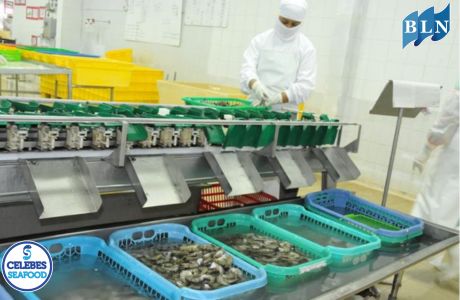These Are Some Nutrition You Get from Sea Cucumber
By. Nevanda - 27 Sep 2023
lautnusantara.com - Sea cucumbers are marine animals that contain a variety of nutrients that are beneficial for human health. The nutritional content of sea cucumbers has been the focus of research and scientific interest over the past few decades. In the mysterious underwater world, sea cucumbers have emerged as amazing sea creatures with tremendous nutritional potential. From proteins to amino acids, collagen, minerals and a wide array of bioactive compounds, sea cucumbers have a lot to offer to support human health.
The nutritional content of sea cucumbers can vary depending on the species, but in general, sea cucumbers contain several key components, including:
1. Protein
Sea cucumbers contain protein which is an essential component in building and repairing body tissues. Protein also plays a role in various biochemical processes in the body.
Read also: Exploring the Distribution of Sea Cucumber
2. Amino Acids
Sea cucumbers contain essential and non-essential amino acids. Amino acids are the main components in the formation of proteins and function for various metabolic processes in the body.
3. Collagen
Sea cucumbers contain collagen, which is essential for healthy skin, hair and nails. Collagen also helps maintain healthy joints and bones.
4. Mucopolysaccharides
Sea cucumbers contain mucopolysaccharide compounds that can support skin and mucosal health, and play a role in connective tissue repair.
5. Minerals
Sea cucumbers contain a number of minerals, including calcium, magnesium, iron, and zinc, which are necessary for maintaining healthy bones, blood, and other body system functions.
Read also: The Vital Role of Mangrove in the Fishing Industry
6. Vitamins
Sea cucumbers also contain vitamins, including vitamin A, vitamin B, and vitamin C. These vitamins play a role in various metabolic processes and may help to strengthen the body's immune system. These vitamins play a role in various metabolic processes and can help strengthen the immune system.
7. Antioxidant
Sea cucumbers contain antioxidant compounds, such as saponins, which can help protect the body's cells from free radical damage.
8. Steroidal Glycosides
Some types of sea cucumber contain steroidal glycoside compounds that have been studied for potential anti-inflammatory and antioxidant effects.
Sea cucumbers have long been used in various traditional medicine traditions, especially in China, for various health benefits. However, it is always advisable to consult a medical professional before taking sea cucumber products as supplements or herbal remedies, especially if you have a specific medical condition or are taking other medications.
Read also: Cleaning and Preparing Fresh Squid







.jpg)
